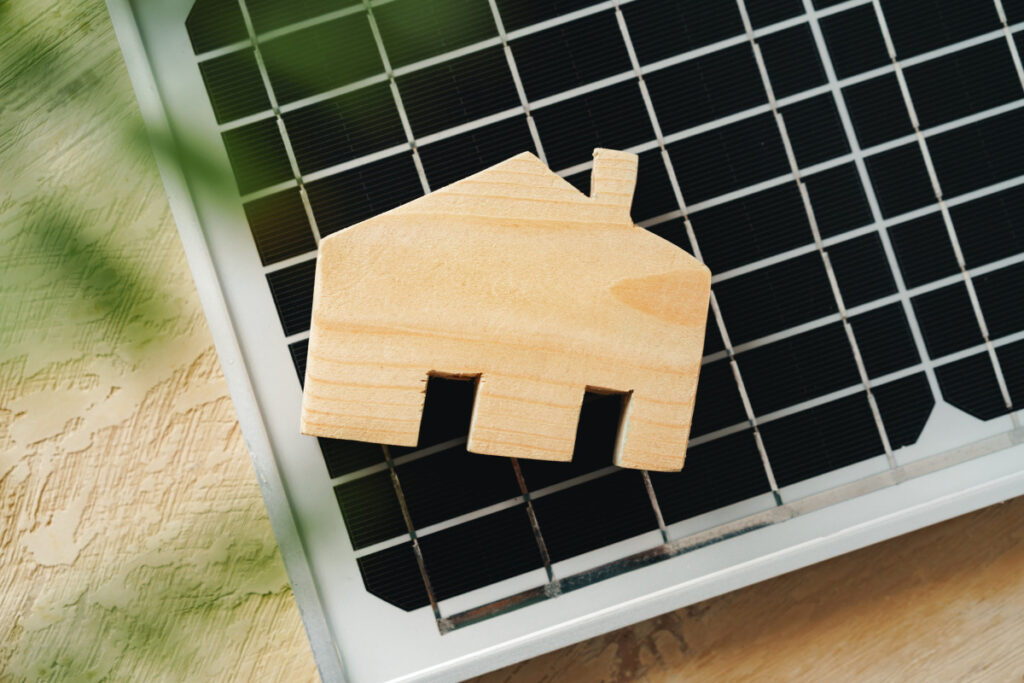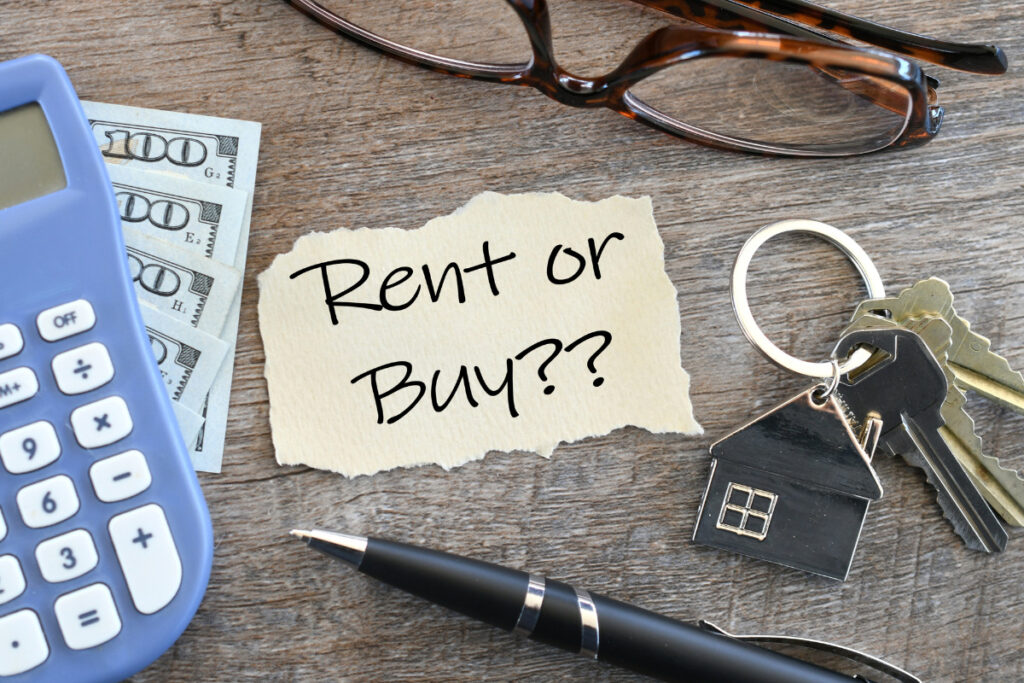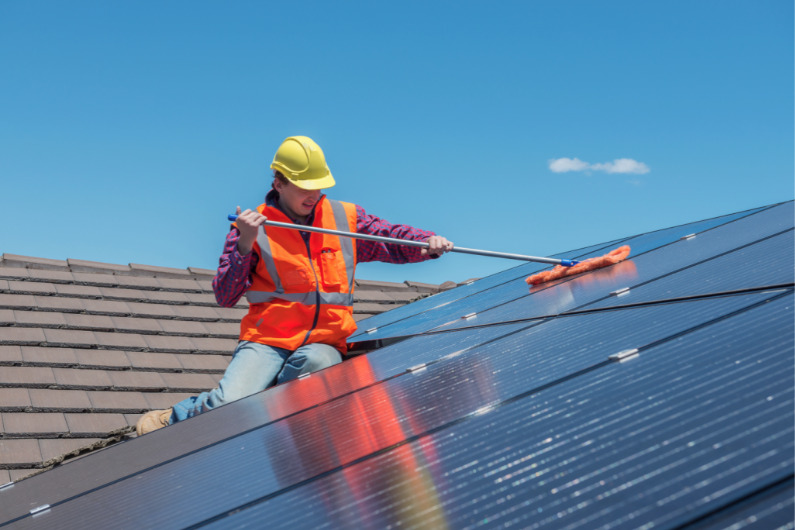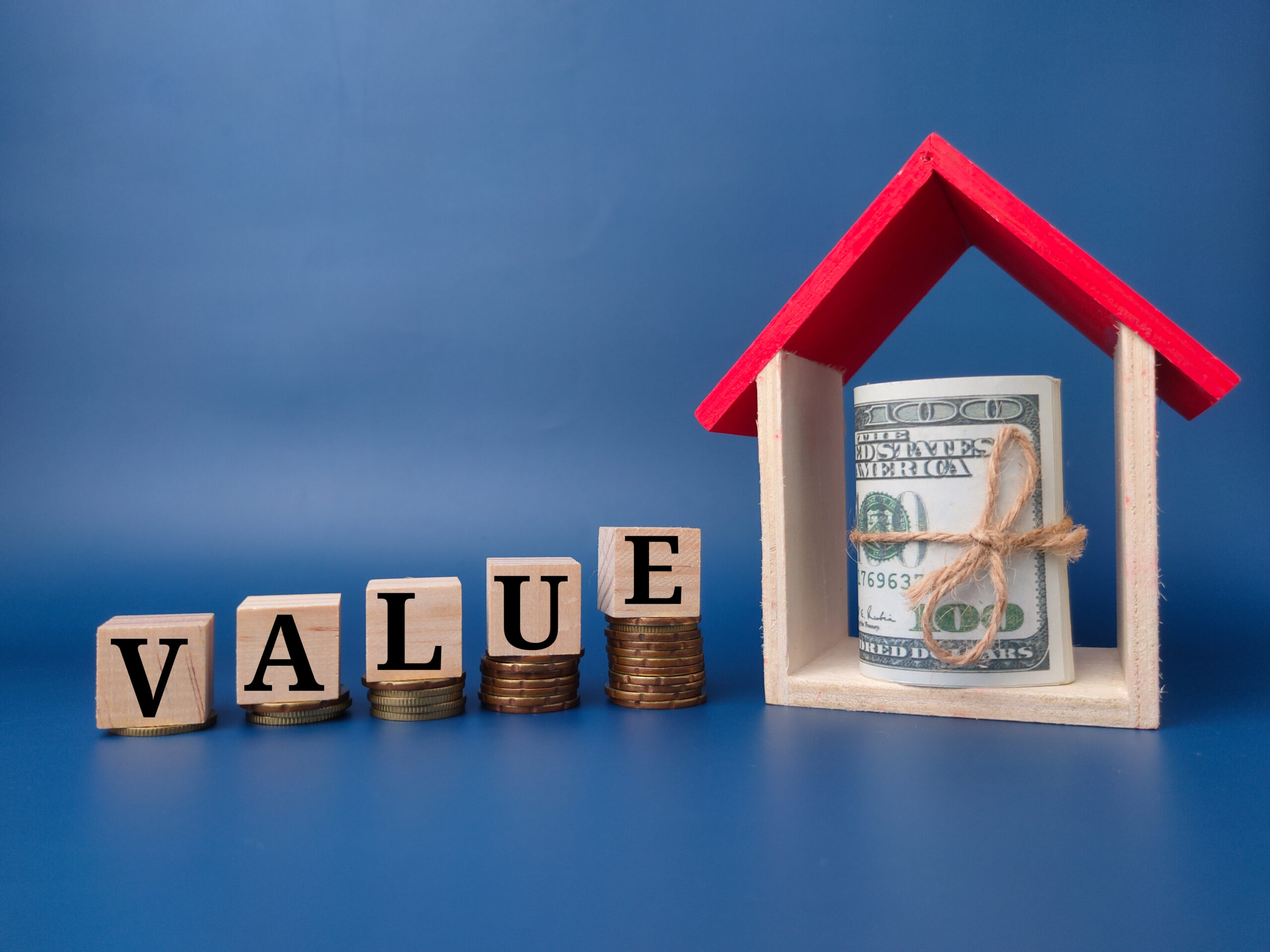Introduction
As a property owner or renter, the benefits of solar energy are undeniable. However, navigating the world of solar power for rental properties can be daunting. That’s why we’ve compiled this comprehensive guide on solar panels for rentals. We will explore all aspects, including benefits, installation factors to consider, financing options, and more.
Join us on this journey towards eco-friendly living and potential cost savings. Whether you’re a landlord seeking to attract great tenants or a tenant aspiring for sustainable lifestyle choices in rented accommodations.
Benefits Of Solar Panels On Rental Properties
Installing solar panels on rental properties can offer several benefits. These include reduced energy costs, increased property value, an eco-friendly image, and access to tax credits and incentives.
Reduced Energy Costs
As a property owner, you understand that tenants are increasingly concerned about utility expenses. They also seek eco-friendly solutions to help manage these costs. One of the primary benefits of installing solar panels on rental properties is the significant reduction in energy costs.
By harnessing renewable solar power, your rentals can generate a portion, if not all, of their electricity needs. This will depend on the size and efficiency of the installed system.
Consider this example: A residential property with an average monthly electricity bill of $100 could see savings between 30% and 70% by switching to solar energy.
Energy prices are expected to rise due to increasing demand and dwindling fossil fuel resources. Investing in solar panels can provide long-term financial security against future fluctuations in traditional energy costs. Over time, these savings will add up for both you as the landlord and your renters.
Increased Property Value
Investing in solar panels for rental properties can increase their overall value in the real estate market. This is due to the potential for lower energy costs, which can attract tenants seeking long-term savings. The reduced energy costs can make the property more appealing and profitable in the competitive rental market.
In addition to cost savings, having a solar-powered rental property demonstrates commitment towards sustainable living and energy conservation. As more people become environmentally conscious, properties with eco-friendly features are increasingly desirable.
Furthermore, landlords may qualify for tax incentives that promote renewable and clean energy usage. These incentives are an additional factor that can directly contribute to increased property value appreciation.
Eco-Friendly Image
Installing solar panels on rental properties creates an eco-friendly image for landlords and tenants.
Society demands sustainable living options, reducing carbon footprint and environmental impact. Solar arrays reduce fossil fuel reliance and energy consumption. This eco-friendly image helps market property and, combats climate change, reduces emissions. Landlords show commitment to sustainability and appeal to renters who value these principles.
Tax Credits And Incentives
A huge benefit of installing solar panels on rental properties is the tax credits and incentives available to property owners. Here are some key things to keep in mind:
- Rental properties can qualify for the federal solar tax credit if solar panels are installed.
- The federal investment tax credit provides a credit for income taxes that lowers the tax bill for those interested in residential solar photovoltaics.
- The Residential Clean Energy Credit is a solar tax credit incentive to install solar panels on a home.
- Property owners can subtract 30% from installing solar heating and electricity costs with the new legislation’s Residential Clean Energy Credit.
- Solar panels can earn property owners a federal tax credit that can slash up to 30% of the cost of a home solar-energy system.
Tax credits and incentives can offset upfront solar panel installation costs. Renewable energy sources like solar power also offer eco-friendly incentives and rebates from local or state governments. This makes solar power an even more attractive option for property owners.

Factors To Consider Before Installing Solar Panels On Rental Properties
Consider the location and sun exposure, ownership and leasing options, upfront costs, and ROI before investing in solar panels for rental properties.
Property Location And Sun Exposure
The location of a rental property plays a vital role in determining the feasibility of installing solar panels. Sun exposure is one of the most crucial factors before deciding on solar panel installation.
Solar panels require direct sunlight to produce electricity, so they must be installed with maximum sun exposure.
Moreover, the orientation and slope of a roof also affect the efficiency of solar panels. A south-facing roof with an inclination between 30-45 degrees provides optimal sun exposure compared to other directions or angles.
To determine if solar panel installation is feasible for rental properties, owners should assess sites and shading patterns. Different neighborhoods may have varying levels and types of shadows throughout specific times each day.
Ownership And Leasing Options
When installing solar panels on rental properties, property owners can choose between owning the system or leasing it from a third-party company. Here are some important factors to consider before making your decision:
- Ownership: If you purchase solar panels, you can fully own the system and claim tax credits and incentives. However, you will also be responsible for any maintenance or repair costs.
- Leasing: With a solar lease or power purchase agreement, a third-party company owns the panels and is responsible for maintenance and repairs. The landlord or property owner may receive lease payments from tenants who use the energy produced by the panels.
- Financial considerations: Upfront costs for purchasing solar panels can be high, but over time the savings on energy bills can make up for it. Leasing options may have little or no upfront costs, but monthly payments could offset some of the savings gained.
- Contract terms: Review contract terms carefully to understand ownership rights, responsibilities for maintenance and repair costs, warranties, and guarantees provided by either party.
- Consider your goals: Determine your goals for installing solar panels, whether it’s reducing energy bills or improving the eco-friendliness of your rental property.
Considering these factors and understanding your options can help you decide about solar panel ownership or leasing. Renewable energy can lower utility costs and increase sustainability, benefiting landlords and tenants.
Upfront Costs And ROI
Upfront costs and ROI are crucial factors when considering solar panels on rental properties. Calculating ROI involves factors like payback period, tax credits, and incentives from governments or utilities. It’s important to take a long-term view of the investment.
Additionally, financing options are available that reduce or eliminate any initial out-of-pocket expenses associated with going solar.
In conclusion, when installing solar panels on rental properties, upfront costs may concern landlords. However, a long-term view with careful consideration of ROI opportunities shows why it’s an attractive option.

Solar Panel Options For Renters
Renters can still enjoy the benefits of solar energy with portable solar panel solutions, community solar options, and leased solar panels on rental properties.
Portable Solar Panel Solutions
Portable solar panel solutions are an excellent option for renters who want to generate solar power without investing in a permanent installation. Here are some options to consider:
- Plug-in solar panels with micro-inverters: These plug-and-play solar panels come with pre-installed inverters and can be connected directly to an outlet. They don’t require electrical rewiring or mounting and can be easily moved from one location to another.
- Community Solar Options: Many utility companies offer community solar projects that allow multiple individuals or businesses to share the benefits of the same solar system. Renters can subscribe to these programs and enjoy the savings of generating clean energy without installing anything on their rental property.
- Leased Solar Panels on Rental Properties: Some companies offer lease packages for renters, where they pay a monthly fee for access to a complete solar installation on their rented property. This is a good option for renters who plan on staying at a location for several years and want to benefit from lower energy costs while contributing to sustainable energy usage.
Remember that the upfront cost, return on investment, and maintenance requirements are essential when considering going solar as a renter. But with portable solutions like plug-in solar panels, community projects, and leased installations, renters have more environmentally friendly options than ever!
Community Solar Options
Community solar options are an excellent way for property owners to support renewable energy and see financial benefits. Here are some key points to consider:
- Community solar customers can buy or lease a portion of the solar panels in the array and receive an electric bill credit, reducing overall electricity costs.
- As a landlord, supporting community solar projects is simpler than installing individual solar panel systems on each rental property.
- Tenants can also benefit from community solar programs, receiving credits on utility bills without needing installation or maintenance.
- Property owners can attract environmentally conscious tenants and improve their public image by promoting eco-friendly options like community solar.
- Community solar is an excellent option for properties that may not have enough sun exposure to install individual solar panels.
By exploring community solar options, property owners can support sustainable energy and save on electricity costs while providing an attractive feature for potential renters.
Leased Solar Panels On Rental Properties
If you are a rental property owner considering installing solar panels, leasing may be a viable option. Here are some key points to consider:
- Leasing solar panels can reduce upfront installation costs and provide long-term cost savings on energy bills.
- Some solar leasing agreements include maintenance and repair services for the panels, saving property owners money in the long run.
- However, leasing may not increase the property’s value and can make it more challenging to sell in the future.
- It is essential to carefully review the terms of a solar lease agreement, including the length of the lease and any potential penalties for early termination.
- Tax credits may be available for rental property owners who install solar panels, but renters may not be eligible for these incentives.
Losing solar panels on rental properties can save significant costs while promoting sustainable energy use. As with any major investment decision, it is important to consider all factors before committing.

Financing Options For Solar Panel Rentals
Financing options for solar panel rentals include solar lease agreements, power purchase agreements, and solar loans.
Solar Lease Agreements
Solar lease agreements are popular for homeowners who want to install solar panels. With a solar lease agreement, the lessee pays a fixed monthly fee for using solar panels and any associated equipment.
Many leasing companies specialize in providing solar energy solutions for rental properties. Some offer flexible financing options and customized plans tailored to specific needs.
By entering into a solar lease agreement, renters can enjoy reliable, clean energy at an affordable price while reducing their carbon footprint.
Power Purchase Agreements
Property owners can finance a solar panel system through a Power Purchase Agreement (PPA). This financial arrangement involves a third-party developer who designs, permits, finances, installs, and operates the solar panels.
The developer then sells the energy generated by the panels back to the property owner at an agreed-upon rate. PPAs are common for larger renewable energy projects in healthcare facilities, educational institutions, and manufacturing.
Solar leases and PPAs also have minimal upfront costs compared to outright buying a solar panel system. Property owners interested in going green while saving money may consider exploring these financing options with reputable solar companies.
In addition to lowering electricity bills and adding value to rental properties, utilizing PPA financing can also help establish your business as environmentally friendly — which is increasingly becoming a key selling point among renters who care about sustainability practices when choosing their living arrangements or office spaces.
Solar Loans
A solar loan is one of the most popular financing options for homeowners who want to install solar panels on rental properties. This type of financing allows you to borrow money upfront and pay it back over a set period, usually five to 20 years.
Solar loans can be secured or unsecured, depending on your credit score and other factors.
If upfront costs are an issue, you can look into leasing options where a third party (e.g., utility companies) installs and owns the system. At the same time, renters make payments over time based on energy production.
Leasing typically requires no down payment or maintenance responsibility from property owners.

Maintenance And Cleaning Of Solar Panels On Rentals
Regularly maintaining and cleaning solar panels is crucial for optimal performance and longevity, but who is responsible? Find out the answer to this question and more in our in-depth guide on maintaining and cleaning solar panels on rental properties.
Regular Cleaning Procedures
Regular cleaning procedures for solar panels are essential to ensure they are running at their highest efficiency. Here are some important steps property owners should take to maintain their solar panel rentals:
- Schedule regular cleaning: While most solar panels do not require frequent cleaning, they may be necessary in areas with dust or debris. Property owners should schedule regular cleanings, usually once or twice a year.
- Use high-quality equipment: When cleaning solar panels, it’s important to use the right tools and techniques to avoid damaging them. Property owners should invest in high-quality equipment and professional services to ensure the job is done correctly.
- Consider weather conditions: It’s best to clean solar panels on a cloudy day with mild temperatures. Avoid washing them during extreme weather conditions such as heavy rain or snow.
- Check for damage: While cleaning, it’s an excellent opportunity to check for any damage or issues with the solar panels. Property owners should note any cracks or damage and schedule repairs immediately.
- Engage tenant participation: Property owners can also encourage tenants to participate in maintenance by reminding them not to place large objects near the solar panels that could block sunlight and reduce efficiency.
Following these regular cleaning procedures allows property owners to keep their solar panel rentals operating at peak performance levels without incurring extra costs or maintenance packages.
Maintenance Requirements
Maintenance is essential to owning solar panels and keeping them functioning efficiently for as long as possible. Here are some important maintenance requirements to keep in mind for rental properties with solar panels:
- Regular Cleaning Procedures: Dirty or obstructed solar panels can significantly reduce efficiency, so regular cleaning is crucial. It is recommended to clean the panels every six months or more frequently if they are located near a dusty or polluted area.
- Maintenance Requirements: Solar panel installations require little maintenance apart from keeping them clean, ensuring that the wiring and fixtures are intact, and checking connections periodically.
- Tenant and Landlord Responsibilities: The responsibility for maintaining solar panels on rental properties can vary depending on the lease agreement. In some cases, landlords may be responsible, while in others, tenants may be required to clean the panels regularly.
- Solar Panel Monitoring: Monitoring systems can detect any issues with system performance before they become major problems. Property owners should consider investing in a monitoring system to ensure their solar panels operate efficiently.
- Professional Inspections: It’s important to have your solar panel installation inspected by a professional at least once a year to avoid potential damage caused by extreme weather conditions or other factors that could affect their longevity.
- Repairs and Replacements: When needed, any damaged parts should be replaced immediately by a professional specializing in this repair work.
By following these maintenance requirements, property owners can extend the lifespan of their solar panel installations while maximizing energy production and efficiency, thus ensuring substantial savings on utility costs over time.
Tenant And Landlord Responsibilities
For property owners installing solar panels, consider maintenance and cleaning responsibilities. Include clear language in lease agreements outlining tenant and landlord responsibilities before installation.
Landlords are responsible for ensuring that the initial installation meets all safety regulations and necessary building permits.
Regular cleaning procedures should also be established between tenants and landlords. Frequent washing with water or soft cloth will help improve energy production while avoiding damage from dust buildup, bird droppings, or leaves.
By proactively discussing tenant and landlord responsibilities upfront, you can avoid misunderstandings regarding who is responsible for keeping the solar panel system functioning efficiently while saving on electricity bills simultaneously!

Marketing Solar-Powered Rentals
To attract environmentally-conscious tenants and highlight cost savings, marketing solar-powered rentals can emphasize eco-friendly features and incentives such as tax credits and rebates.
Highlight Eco-Friendly Features And Cost Savings
As a property owner, marketing your rental as eco-friendly can help you stand out in a crowded market. By highlighting the cost savings associated with solar-powered rentals, you can appeal to renters looking for sustainable living options that save them money on their monthly utility bills.
Some examples of how to market eco-friendly features include emphasizing energy-efficient appliances, low-carbon footprint practices, and renewable energy sources like solar power.
Additionally, promoting rebates and incentives available through tax credits or state programs can make going green even more appealing to potential tenants.
Emphasize Incentives And Rebates
It’s no secret that solar power is becoming more affordable and accessible for homeowners.
For example, the California Solar Initiative (CSI) offers residential and commercial installation incentives, including rentals. Additionally, some utility companies offer net metering programs where excess energy generated by solar panels can be sold back to the grid at a premium.
This means renters may see reduced electricity bills or even receive credits from their utility company.
Challenges And Opportunities Of Solar Panel Rentals
Legal and regulatory issues and maintenance and repair costs can challenge landlords considering solar panel installation on rental properties. At the same time, successful case studies in residential and commercial settings offer opportunities for increased revenue streams and sustainability.
Legal And Regulatory Issues
Knowing the legal and regulatory issues surrounding solar panel rentals is crucial for a property owner. While leasing out your property for solar power can bring in several benefits, such as increased property value, reduced energy costs, and an eco-friendly image, there are some implications that you must consider.
Additionally, dealing with government agencies can present novel issues that may affect the execution of leases for solar leasing. It’s essential to stay informed about new policies related to renewable energy and clean energy initiatives at both federal and state levels.
You must understand the implications of these contracts before signing them to decide which option best suits your situation.
Maintenance And Repair Costs
Regular maintenance and cleaning of solar panels are crucial to maximizing their efficiency over time. It is essential to watch for any signs of damage or malfunctions, such as cracked panels, discolored cells, or loose connections, which could reduce output and increase repair costs in the long run.
In addition, tenants should be informed about proper care procedures and encouraged to report any issues immediately. While leased systems’ repairs may not be your responsibility directly, choosing a reputable provider with a solid warranty and maintenance service plan is vital.
If you own your solar system outright or through financing options such as loans, investing in high-quality equipment can help minimize the need for expensive repairs down the line.
Case Studies Of Successful Solar Panel Rentals
Many property owners have successfully installed solar panels on their rental properties. Here are some case studies to consider:
- Oakland, California – A landlord of a 30-unit apartment complex installed solar panels and cut his electricity bill by 43%. He also used the savings to make energy-efficient upgrades to the property.
- Phoenix, Arizona – A property management company installed solar panels on several of their rental properties and saw a significant increase in their property value. The company was also able to attract eco-conscious tenants who were willing to pay higher rent for sustainable living options.
- Madison, Wisconsin – A non-profit housing organization installed solar panels on their low-income housing units and utilized net metering to sell excess energy back to the grid. This allowed them to provide affordable housing with reduced electricity costs for residents.
- Los Angeles, California – A commercial real estate company installed solar panels on a shopping center they owned. It was able to significantly reduce its operating expenses while also attracting eco-minded tenants.
These case studies show that installing solar panels on rental properties can financially and environmentally benefit property owners.
Residential And Commercial Examples
There are successful solar panel rentals for residential and commercial properties. Here are some examples:
- Residential: In California, a property management company installed solar panels on several rental properties, reducing energy costs by up to 80%. The tenants enjoyed lower electricity bills, while the landlord saw increased property value.
- Commercial: IKEA has invested heavily in solar power, with over 730,000 solar panels installed worldwide across their retail stores and distribution centers. Not only do they save money on energy costs, but they also promote their commitment to sustainability.
- Residential: A Colorado-based start-up offers portable solar panels that renters can use in their apartments or bring while traveling. This provides a cost-effective, eco-friendly solution for those who cannot install permanent panels.
- Commercial: Google has committed to purchasing all of the energy generated by a new solar farm in North Carolina through a power purchase agreement (PPA). This allows them to offset their carbon footprint while supporting renewable energy development.
Conclusion
In conclusion, installing solar panels on rental properties offers numerous benefits for owners and tenants. With reduced energy costs, increased property value, an eco-friendly image, and tax credits and incentives available, it’s clear that investing in solar power is a wise decision.
However, before deciding about installation or leasing options, it’s important to consider factors such as location and sun exposure.
Portable solutions and community solar options are available for renters who want to enjoy the benefits of solar power without owning their own homes or apartment building.
Marketing your rental property as eco-friendly can attract more desirable tenants while benefiting the environment.

FAQs:
- Can I install solar panels on a rental property?
Yes, landlords can invest in solar panels for their rental properties to reduce energy costs and provide eco-friendly housing solutions for tenants.
- How much does installing solar panels on a rental property cost?
The cost of installing solar panels on a rental property varies depending upon factors such as the size of the system, installation location, and local incentives or rebates that may be available. However, numerous financing options include leasing or power purchase agreements (PPA), allowing landlords to pay nominal upfront fees while lowering their electricity bills.
- Will installing solar panels increase the value of my rental property?
Yes! Installing renewable energy sources like solar is one-way businesses can improve their environmental footprint & increase marketability among renters who often consider sustainability when choosing apartments/houses if prices remain competitive with traditional buildings.
- Can I require tenants to use solar power?
While most states have no specific rules blocking such requests – some areas prohibit demands requiring renters to utilize alternative forms of energy as part of tenant agreements, but many communities encourage sustainable building practices – this should always be communicated ahead of time during lease negotiations. Hence, everybody knows what they agree to upfront!
